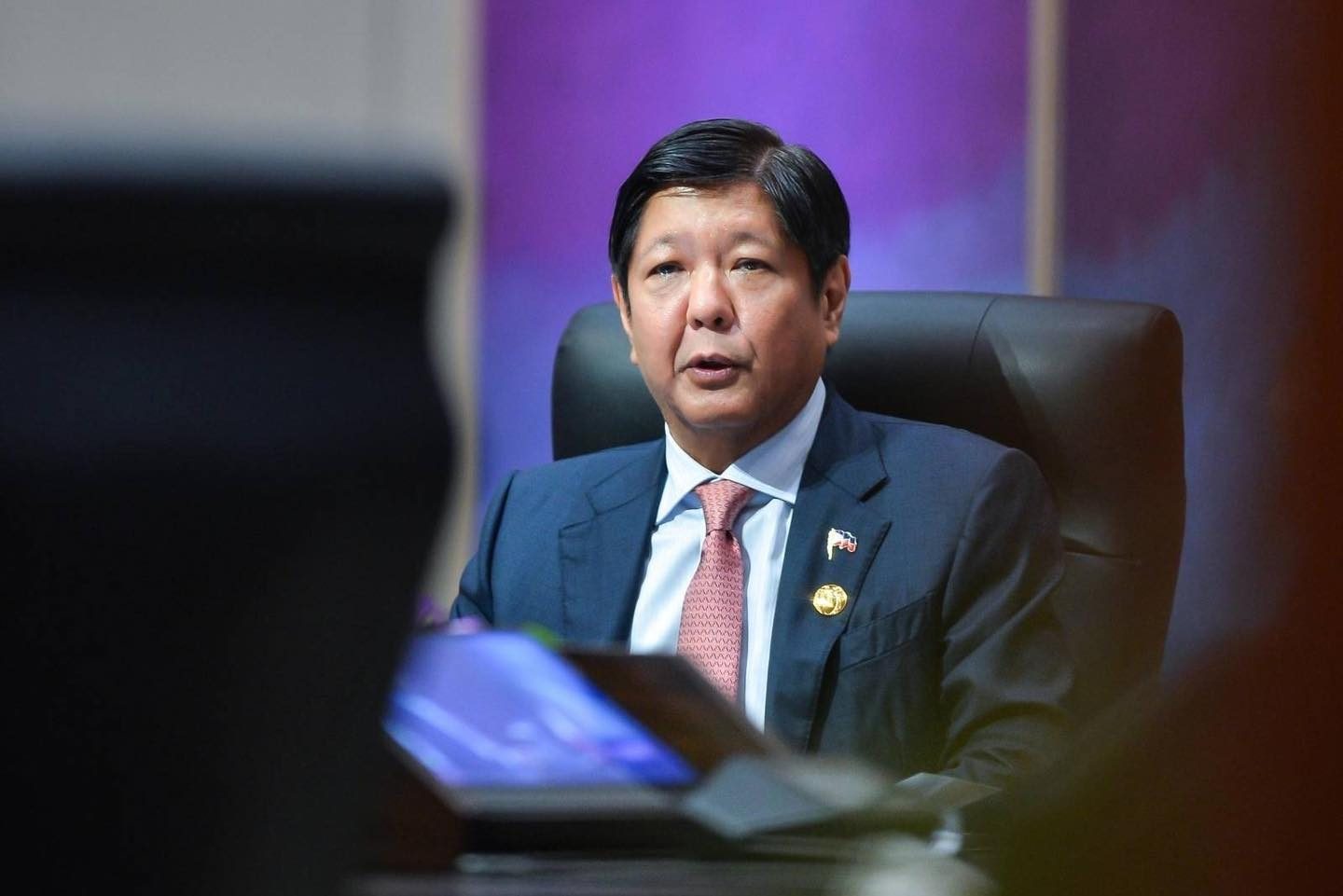SUMMARY
This is AI generated summarization, which may have errors. For context, always refer to the full article.

MANILA, Philippines – President Ferdinand Marcos Jr. again raised the issue of the South China Sea to the international stage, this time in the presence of top government officials in the Middle East.
“It is imperative that we work together to promote peace, security, and stability in both our regions, the South China Sea, and the Arabian Sea, grounded on the rules-based international order to ensure stability and prosperity of our countries and the rest of the world,” Marcos said during the first-ever summit between the members of the Association of Southeast Asian Nations (ASEAN) and the Gulf Cooperation Council (GCC) on Friday, October 20.
Six countries comprise the GCC – Bahrain, Kuwait, Oman, Qatar, Saudi Arabia, and the United Arab Emirates.
“Peace and stability are indispensable to ensuring continued prosperity in our respective regions and of the world,” he added.
The portion on the maritime dispute formed only a small part of his speech during a closed-door meeting in the summit, but it underscored the Marcos administration’s pushback against China in the West Philippine Sea.
The West Philippine Sea is only a part of the bigger South China Sea, which Beijing insists it fully owns, even though an arbitral tribunal already ruled against the Asian superpower’s all-encompassing claim over the vast waterway in 2016.
Just last month, the Philippine president called on ASEAN leaders during a summit in Jakarta to stand against the “dangerous use of coast guard and maritime militia vessels in the South China Sea.”

Tensions have risen in the maritime region in recent months, as seen by a series of documented events that grabbed international headlines – China’s laser-pointing at a Philippine Coast Guard vessel in February, its installation of a floating barrier to block Filipinos from fishing in Bajo de Masinloc, and its firing a water-cannon at Philippine ships on a resupply mission to an outpost in the West Philippine Sea, among other things.
Marcos also urged Gulf states to ensure the “reliable and sufficient supply of petroleum products” and fertilizer to ASEAN countries.
“In as much as its part of the world is the central powerhouse of petrochemical industries, we call on the GCC countries to help ensure the reliable and sufficient supply of oil and gas for ASEAN Member States to respond in a timely and effective manner to the vicissitudes in today’s energy economics, deepening social cleavages, and the disruptions of adverse geopolitical developments,” Marcos said in his intervention at the summit.
“We recognize that chemical fertilizers are the by-products of the petrochemical refinement process, and the GCC can also help ASEAN maintain its food security by filling up supply deficiencies in fertilizer export to our region,” he added. – Rappler.com
Add a comment
How does this make you feel?



![[Just Saying] SONA 2024: Some disturbing points](https://www.rappler.com/tachyon/2024/07/TL-marcos-sona-points-july-23-2024.jpg?resize=257%2C257&crop=335px%2C0px%2C720px%2C720px)






There are no comments yet. Add your comment to start the conversation.